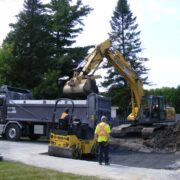It’s crucial to find the best car for you. When you find the right one, you’ll know.
But it’s always challenging to pick out a vehicle when you need to learn more about cars. When looking for your next car, you might come across terms you’ve never heard before.
The key to ensuring you get the most out of your vehicle is knowing the proper handling of your engine. It can mean deciding to go with carburetors or fuel injection. Each has its positives and negatives, as well as its advantages. What this means is that you need to know the differences.
Doing so can ensure that you appreciate your decision on your vehicle. Vehicles are similar in many ways, but they also differ. Read on to find out the differences between carburetors and fuel injection.
Table of Contents
Functionality
One of the main differences between carburetors and fuel injection is that carburetors can be used on gasoline engine vehicles but not on diesel engine vehicles. While fuel injection is available for diesel and gasoline vehicles, carburetors are less efficient for diesel engines.
Fuel Efficiency
There are a few critical differences between carburetors and fuel injectors. Carburetors rely on air pressure to draw fuel into the engine, while fuel injectors rely on pressurized fuel. It means carburetors are more susceptible to fuel starvation, while fuel injectors are less likely to experience this issue.
Carburetors also tend to be less fuel efficient than fuel injectors due to how they atomize the energy. Moreover, fuel injection is more efficient than carburetion because it controls the fuel and air delivered to the engine more precisely. It results in better combustion and higher power output.
You may check the Dieselogic and explore the excellent solution for upgrading your vehicle’s performance injectors. And to make sure your fuel delivery system is working at its best.
How Fuel Travel to the Air Stream
Carburetors and fuel injection have pros and cons, but fuel injection is more efficient. One of the main differences between the two systems is how fuel travel to the air stream. In a carburetor, fuel is first drawn into it and mixed with air before being drawn into the cylinders.
In fuel-injected engines, fuel is first drawn into the cylinders and mixed with air. This difference can affect performance, as carbureted engines may run leaner at high speeds.
Cost of Maintenance
If you plan vehicle maintenance, you will want to know the difference between a carburetor and a fuel injection. Repairing a carburetor is typically cheaper than fixing a fuel injection. Carburetors are less complex, so that fewer parts can break or wear down.
In addition, carburetors are more accessible to service and tune. Fuel injection requires special tools and knowledge to benefit. For example, fuel injection needs a device to control the air and fuel ratio.
Installation of this device is very complex and requires the help of skilled technicians, which can drive up the cost.
Fuel Economy
There has been a lot of debate on which is better for fuel economy, carburetors, or fuel injection. Many believe carburetors are better because they are less expensive to maintain and have fewer parts that can fail. Fuel injection is newer technology and is more efficient and reliable.
However, there is yet to be a definitive answer as to which is better. Many factors affect fuel economies, such as the type of vehicle, driving habits, and climate. Moreover, the best carburetors must always be well-maintained and well-tuned to make them more efficient.
How the Air and Fuel Mixed
One of the most significant differences is how the air and fuel are mixed. In a carburetor, the air and fuel mix in the carburetor itself. In fuel injection, the energy mixes up with the air in the intake manifold.
It means that the air-fuel mixture in a fuel-injected engine is more evenly distributed than in a carbureted engine.
Have Different Throttle Response Time
Carburetors and fuel injection systems have different throttle response times. Carburetors have a more immediate response to throttle input, while fuel injection systems delay slightly. This difference is due to the way each system meters air and fuel.
Carburetors meter air first, then mix fuel with the atmosphere based on the throttle input. Fuel injection meter air and power simultaneously, then inject the mixture into the engine. The delay in fuel injection systems is due to the time it takes to meter the air and fuel and prepare the mixture for injection.
How Mixture Delivered to the Engine
Carburetors and fuel injection systems deliver the correct air and fuel mixture to an engine. However, there are several key differences between the two. One difference is how the combination goes to the engine.
In a carburetor, the mixture is gravity fed to the engine. In fuel injection, the mixture is delivered, under high pressure, directly into the machine. Another key difference is how to measure the air and fuel mixture.
In a carburetor, the air and fuel mixture is metered. An electronic control unit meters the air and fuel mixture for fuel injection.
Carburetors vs. Fuel Injection
Though carburetors and fuel injection systems may look different, they both serve the same purpose in a vehicle, to bring fuel to the engine. Though they operate differently, they both have pros and cons. When deciding which system to use in a car, it is essential to consider the conditions in which the vehicle will be used most often.
So, concerning carburetors vs. fuel injection, it is a matter of preference and what you’re looking for in a vehicle.
If this article has helped you, check out our other blogs!
















Comments